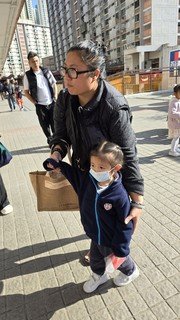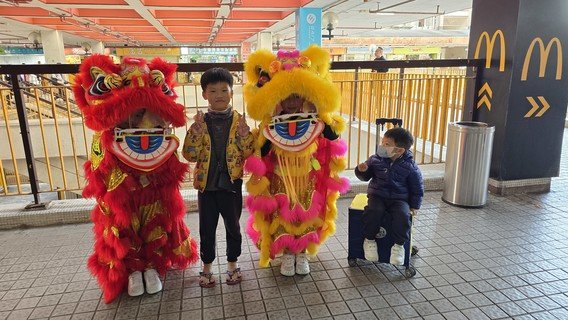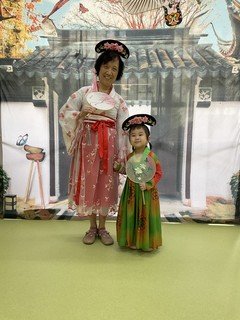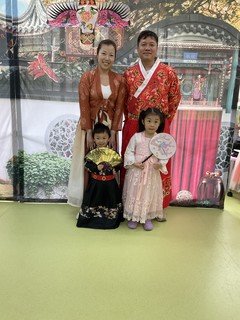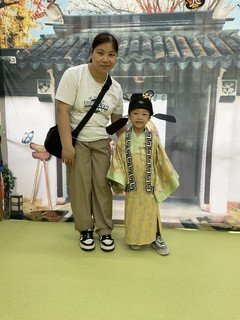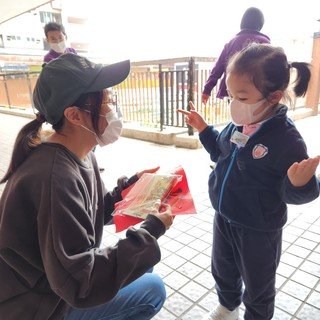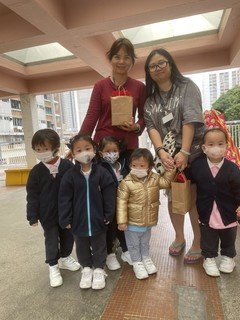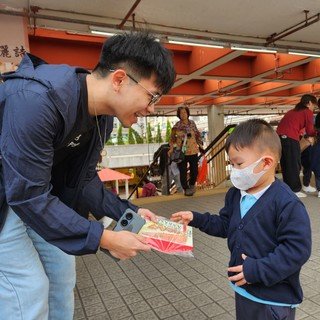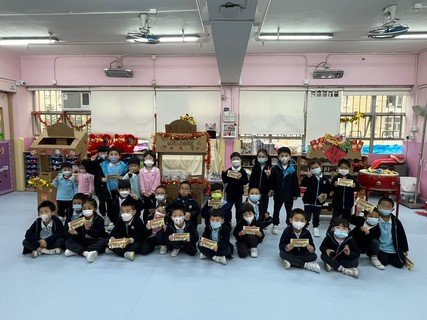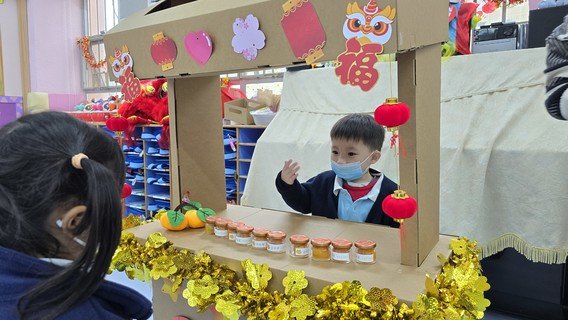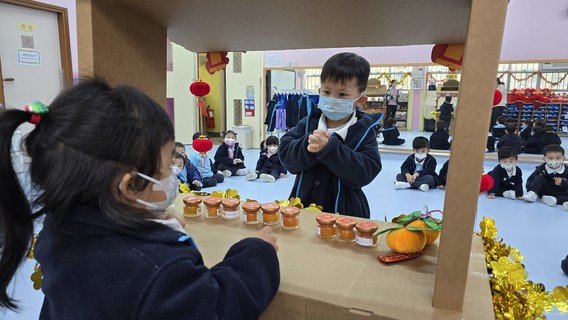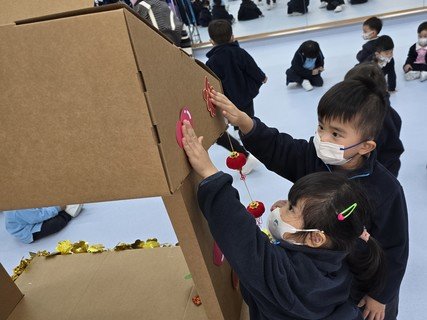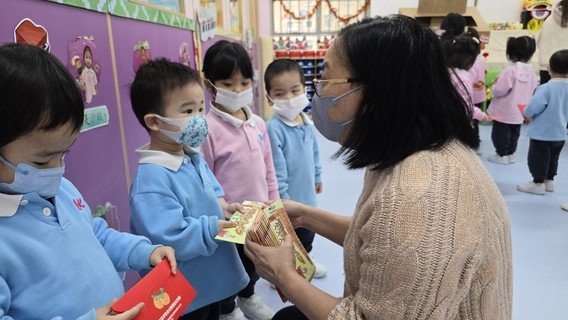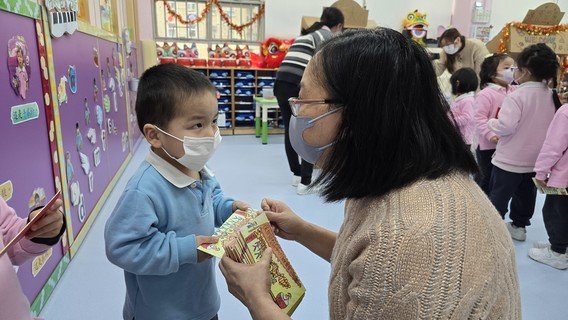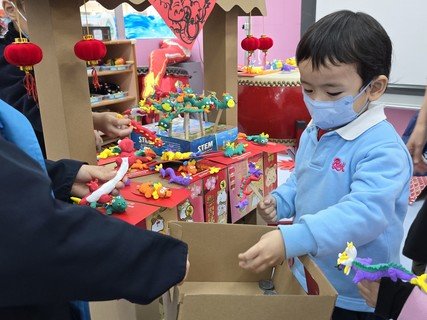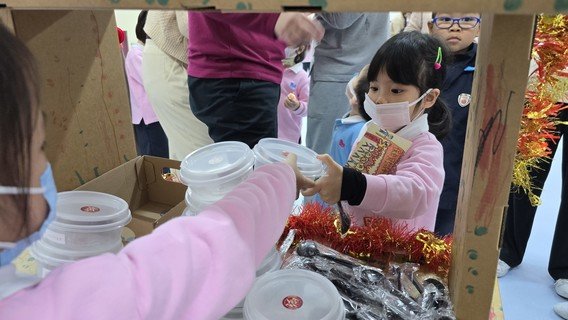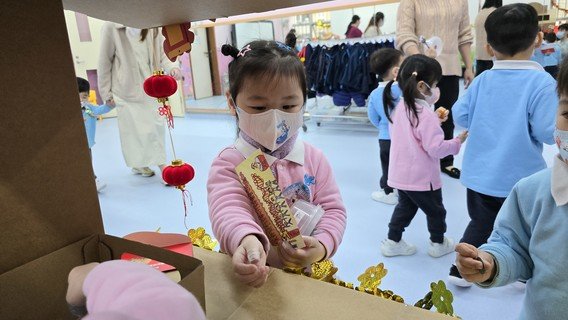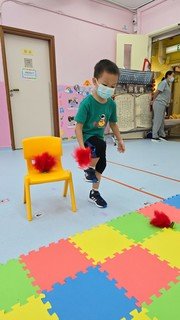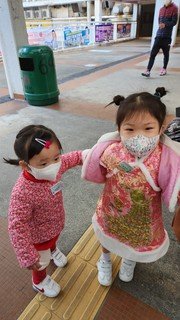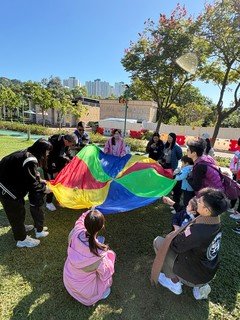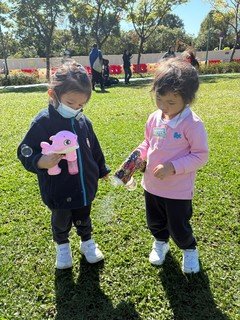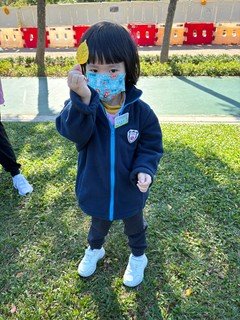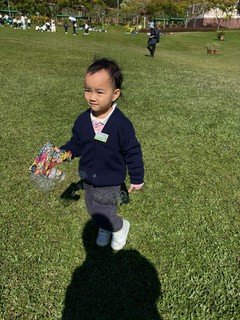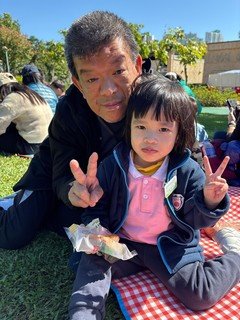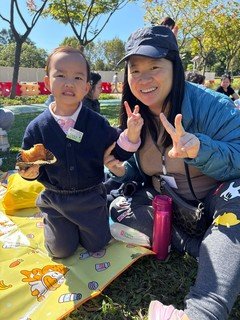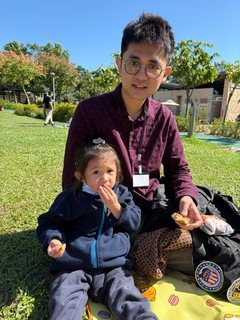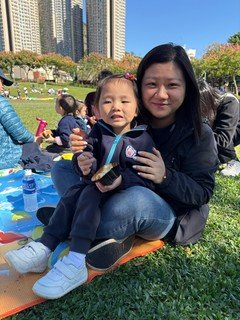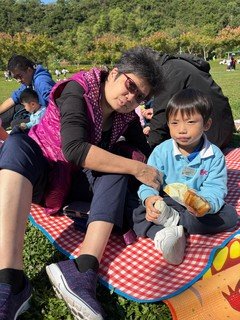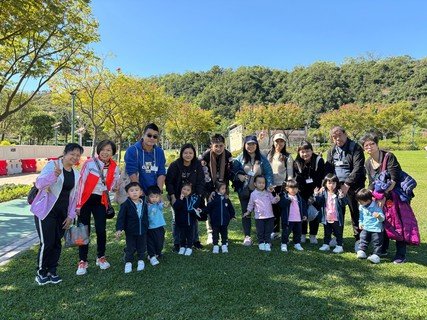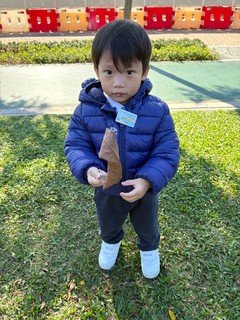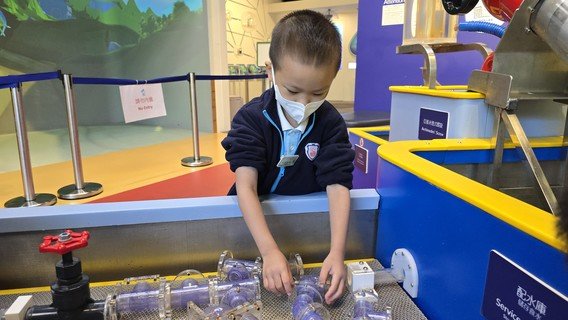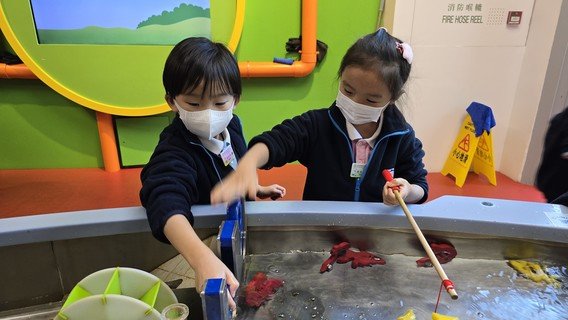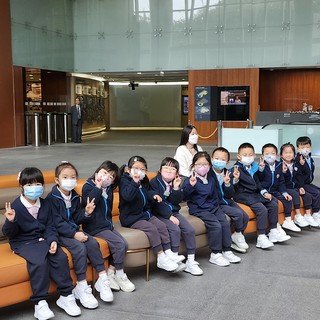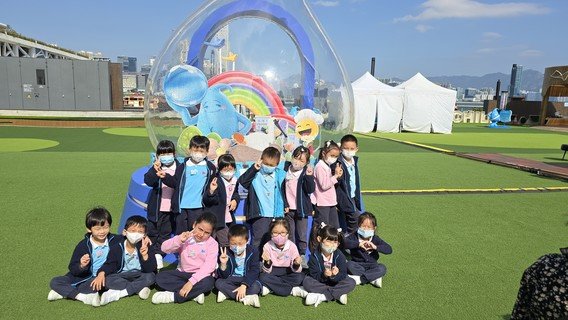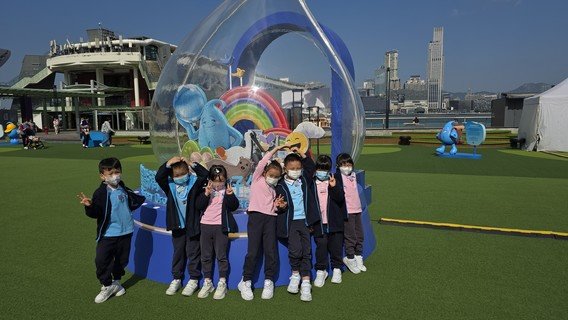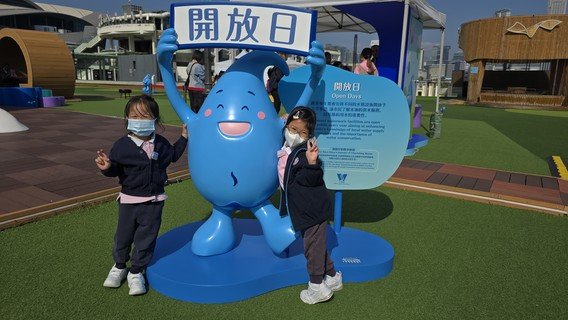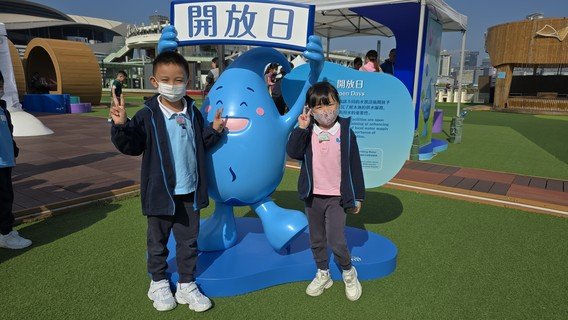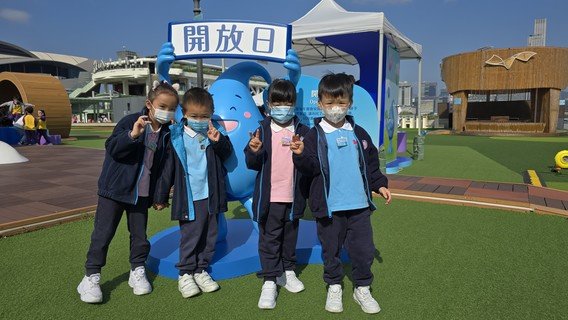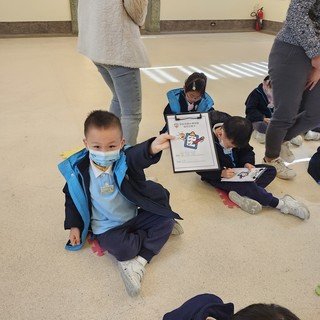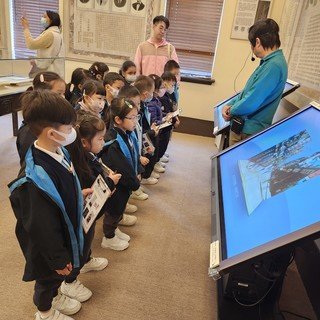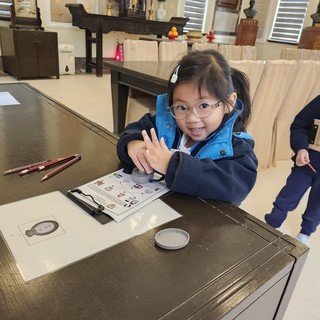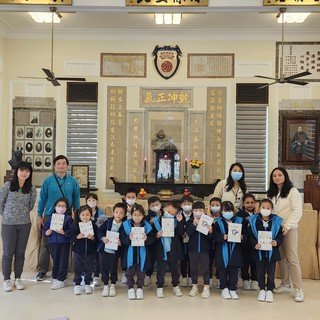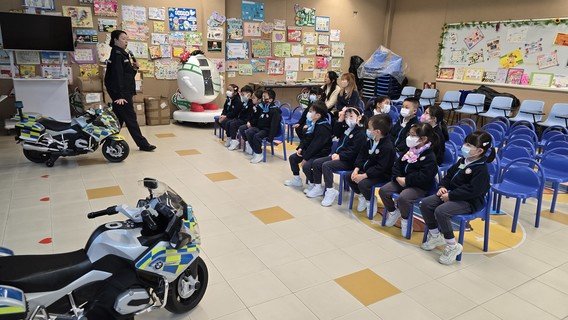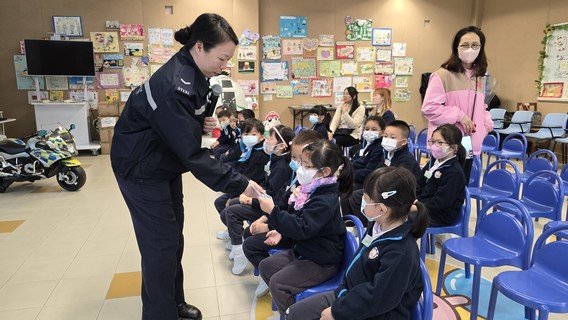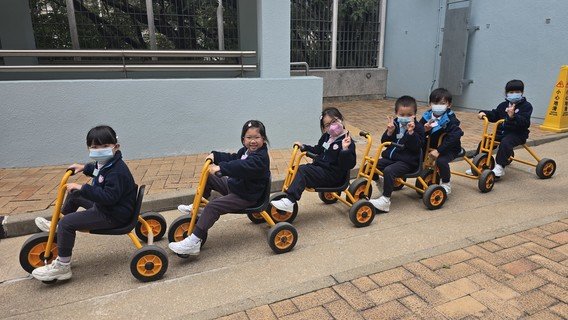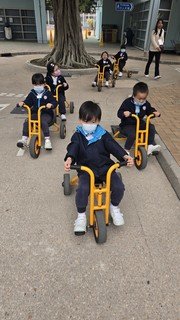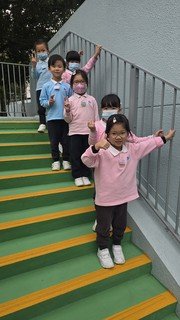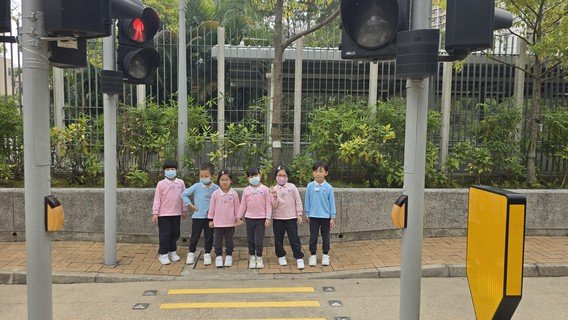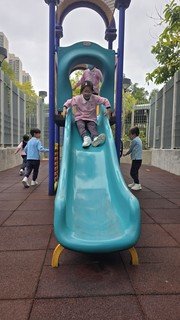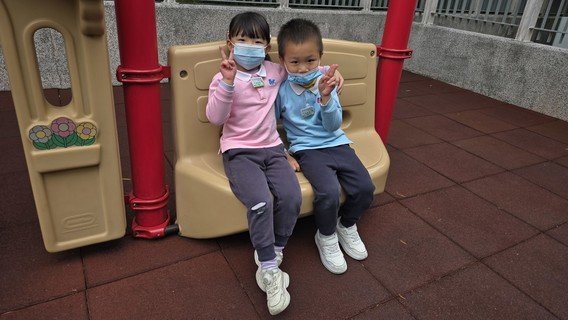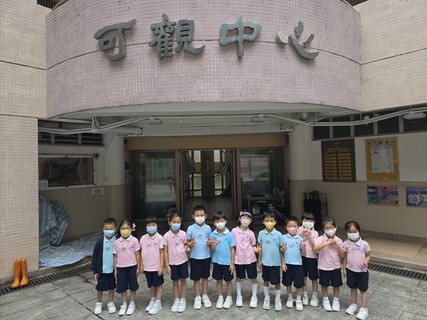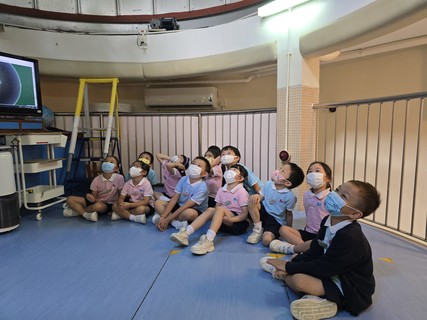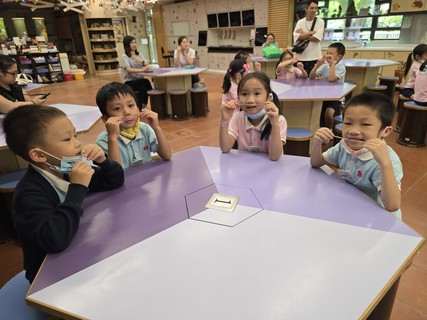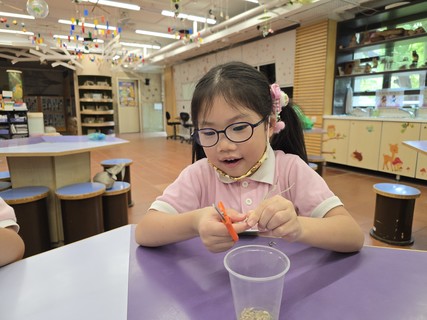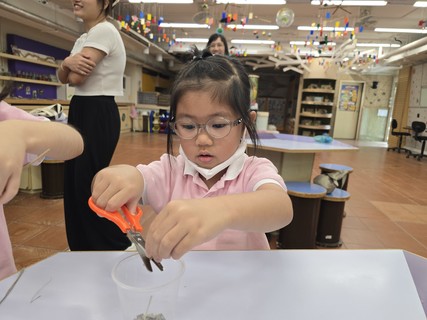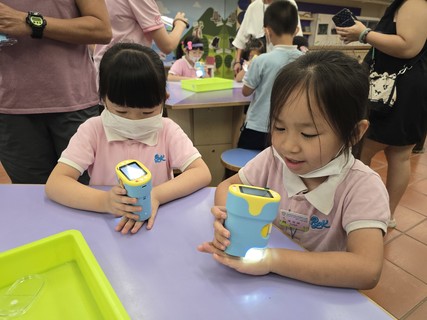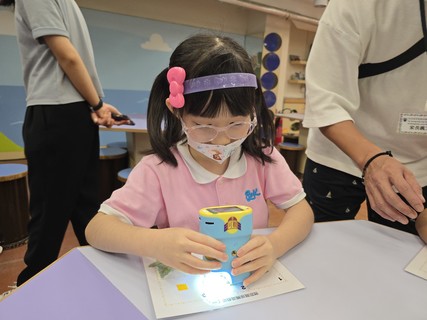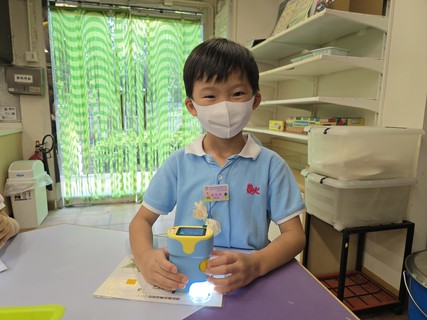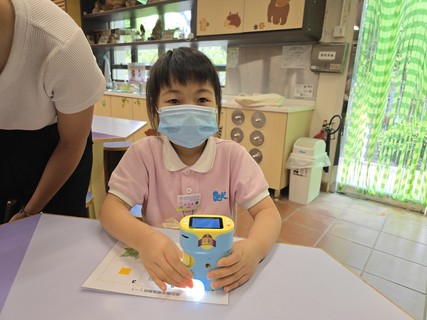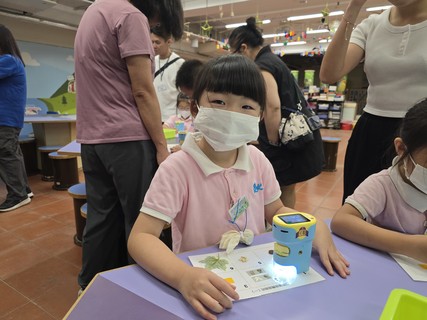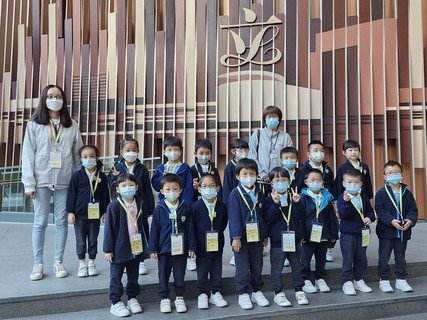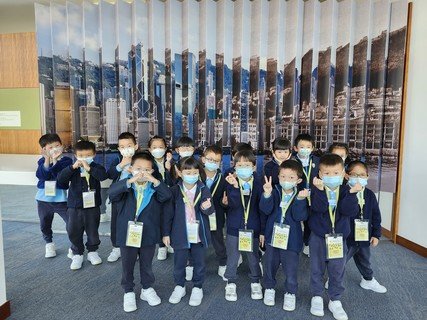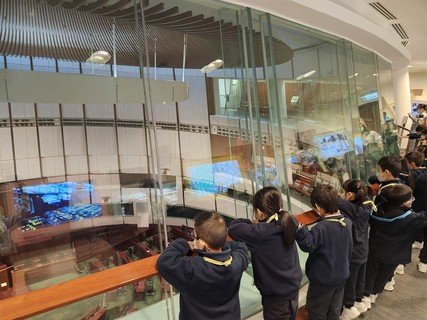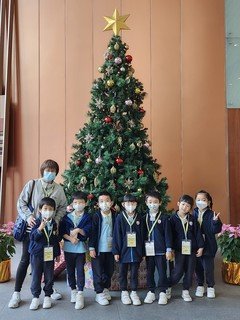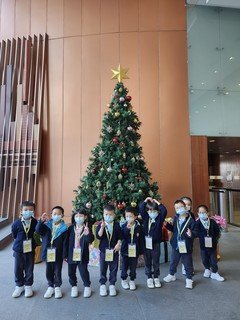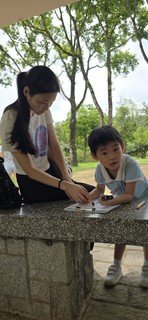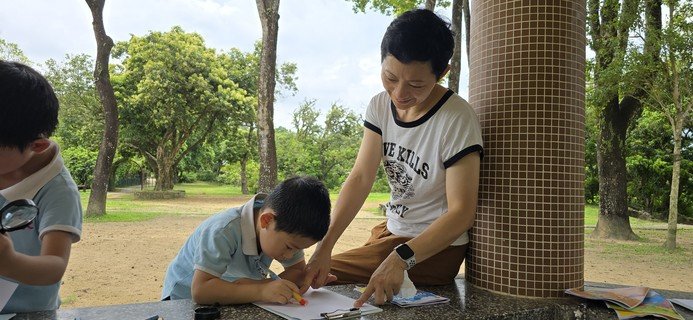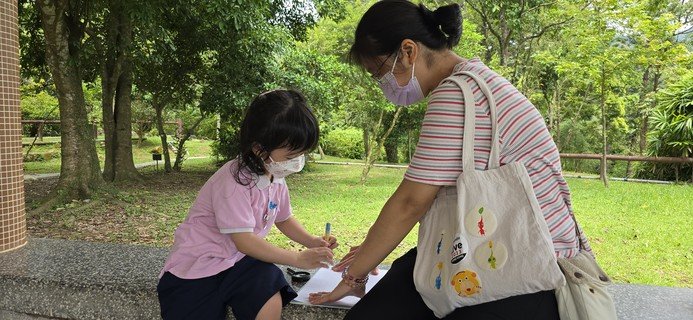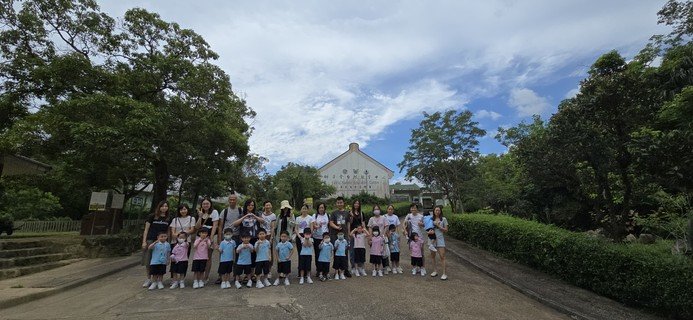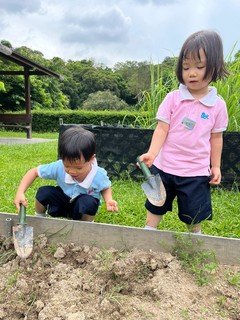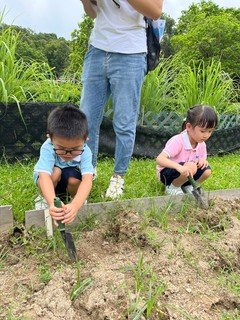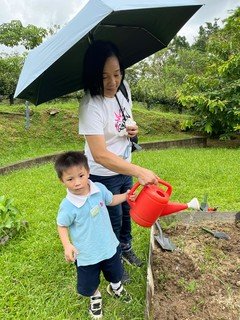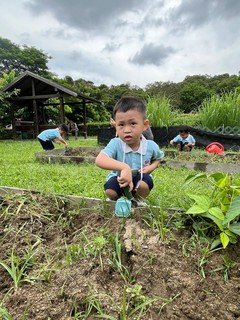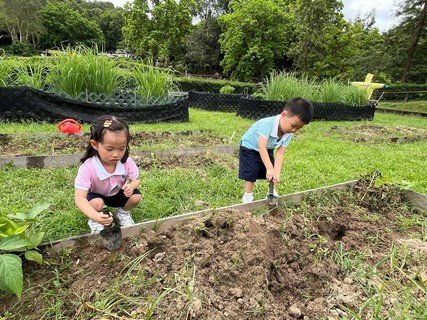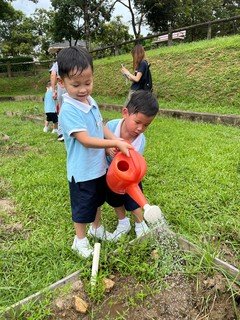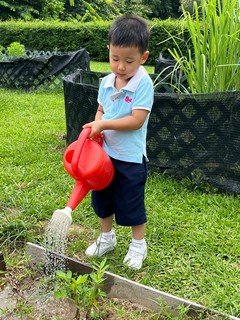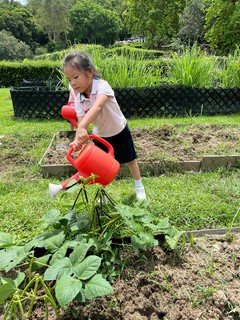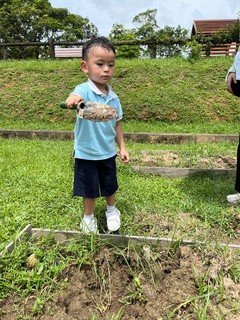Curriculum
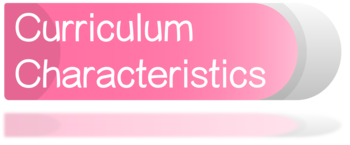

The Kuk attaches great importance to child-centered education to accommodate the individual differences among its students. Children can learn at their own pace by selecting the learning activities according to their abilities and interests, which are conducted under teachers' guidance and self-directed learning alternatively or simultaneously. The teaching design is based on the entire school as a whole and is no longer limited to a single classroom; the learning-rich environment encourages children to explore and learn independently, so as to achieve comprehensive and balanced development.

The Kuk child care service adopts an integrated teaching method along with the thematic approach in pre-school education, with content covers six major Learning Areas, including language, early childhood mathematics, nature and living, arts and creativity, self and society, and physical fitness and health. Versatile extra-curricular activities are arranged for students to enrich real-life learning experience and widen their horizons.

With toys and games elements, children can practice different learning aspects such as language, mathematical concepts, science and technology, and logical thinking through the use of the teaching aids. From "learning by doing" and "learning through play", to consolidate their studies.

Peer interactions construct more opportunities for younger children to mimic the older students on problem solving and improves their learning efficiency. The scaffolding effect stimulates children's language development, and facilitate their social skills with mutual respect when getting along with others.
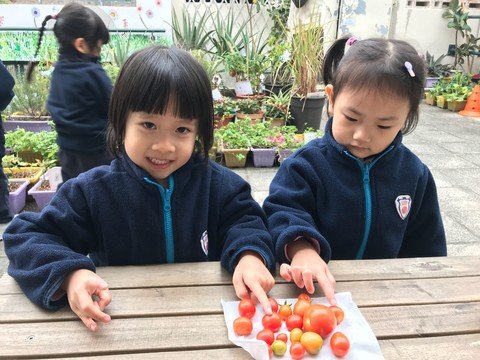
The school adopts "Space Approach" in teaching to cultivate children’s self-directed and self-motivated learning attitudes.
The classrooms are divided into 5 learning zones, including:
- Expressive Communication Zone
- Exploration Zone
- Visual Arts Zone
- Music & Movement Zone
- Physical Movement Zone

Apply real-life context and meaningful learning activities to enhance children’s interests in language learning and their presentation and communication abilities.
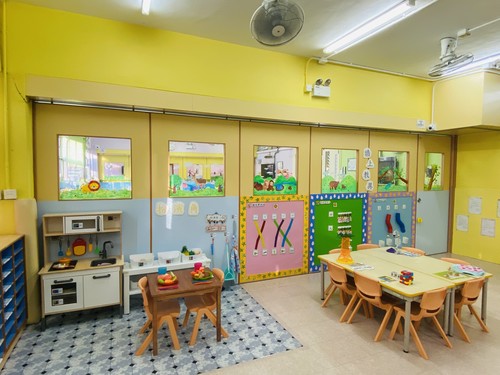

Arouse children’s interests in nature, mathematics and science, cultivate their eagerness to explore, establish logical thinking and problem-solving skills.

Instruct children to utilize materials with different tactile sensations and textures during art activities, empower them to unleash their creativity, express personal feelings and develop their aesthetic sensibility.

Organize a wide variety of music activities and dramas to study different music and perform physical movement creations, in order to increase children's creativity and imagination.

Carry out various physical activities, skills training and group games to train up the gross-motor coordination.
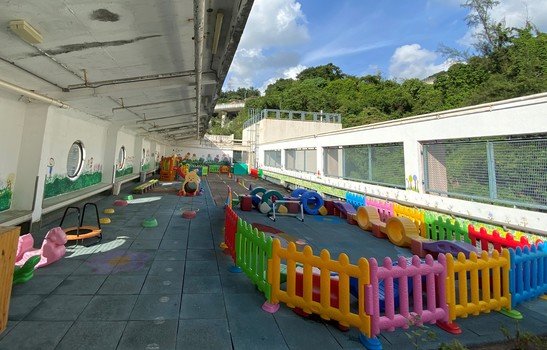
Cross-disciplinary learning will be carried out according to the monthly learning theme amongst each zone.
2024/2025
Through various traditional Chinese cultural activities, enable children to gain a preliminary understanding of Chinese culture and cultivate their sense of national identity.
- For teachers:
- Help teachers gain a deeper understanding of traditional Chinese culture and customs through different
training sessions.
- Enhance teachers’ skills in organising and leading traditional Chinese cultural and customary activities.
- For children:
- Allow children to experience the beauty and uniqueness of Chinese music through exposure to different
traditional Chinese music.
- Allow children to experience the unique charm of traditional Chinese culture through various Chinese art
activities, such as paper-cutting, embroidery, and ink painting.
- Help children understand the values of traditional Chinese culture through traditional Chinese festivals
and stories.
- For parents:
- Help parents gain an understanding of the importance of traditional Chinese cultural activities through
parents’ talks or workshops.
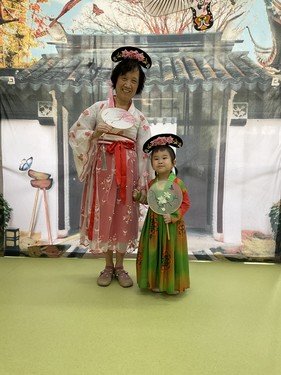
2023/2024
Utilize diverse, unstructured play materials to design various activities to enhance the creativity of young children.
- For teachers:
- Enable teachers to become proficient in designing activity areas with unstructured play materials through
workshops and lectures conducted by professional instructors.
- For children:
- Design a variety of creative learning corners that allow young children to use unstructured play materials
to express their creativity. Examples include a visual arts creation workshop, a natural materials activity
corner, and a construction playground in the exploration area.
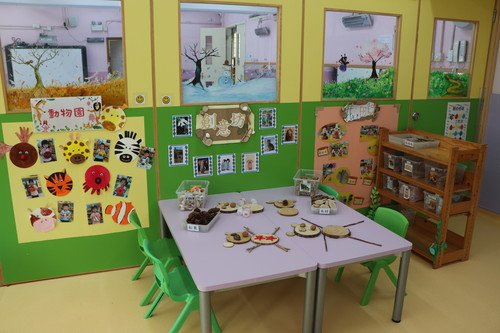
- For parents:
- Conduct educational activities for parents, such as lectures and workshops, to provide insights into the
importance of free play, learning through play, and fostering creative thinking. These activities aim to
encourage and equip parents with techniques to engage with and facilitate their children's learning
through play.
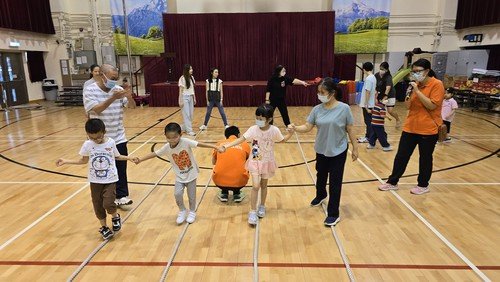
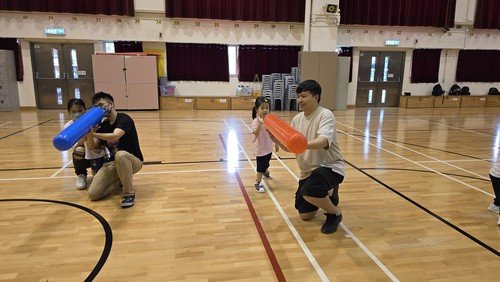
.jpg)
School year: 2024/2025
Theme: Loving China
Grades: N to K3
Objectives
To help children learn about our country and Chinese culture, and to nurture a sense of belonging towards our country.
To cultivate a sense of belonging towards country and a sense of national identity among children.
To teach children to become good citizens who abide by the law, take good care of public property, respect and care for others.
Introduction
Learn Chinese culture and traditional festivals, such as Mid-Autumn Festival, Chinese New Year and Dragon Boat Festival through stories, rhymes and songs so that traditional customs can be inherited.
Through art activities such as Chinese ink painting, Chinese engraving, Chinese traditional paper cutting and food customs, so that children can have a basic understanding of the Chinese culture and their national identity.
Highlights
Children Making Moon-Cake Activity
Mid-Autumn Festival & Birthday Party of September and October
Flag Raising Ceremony
Sichuan Opera face-changing and Ancient Tricks
Making the Chinese Rice Cake
Chinese New Year & Birthday Party of January and February
Chinese New Year Performance
Dic Dic Chang Chang’s World Adventure: Cantonese Opera X Children’s Interactive Theatre by One Table Two Chairs Charitable Foundation (K2 and K3 Students)
Interactive Concert and Promoting Chinese Music: Chinese Culture Day
Learning Chinese Traditional Dessert from Five Senses Joint Parent and Child Workshop
Chinese Cultural Day 2025
Making Rice Dumping
Dragon Boat Festival & Birthday Party of May and June
School year: 2023/2024
Theme: Loving China
Grades: N to K3
Objectives
To help children learn about our country and Chinese culture, and to nurture a sense of belonging towards our country.
To cultivate a sense of belonging towards country and a sense of national identity among children.
To teach children to become good citizens who abide by the law, take good care of public property, respect and care for others.
Introduction
Learn Chinese culture and traditional festivals, such as Mid-Autumn Festival, Chinese New Year and Dragon Boat Festival through stories, rhymes and songs so that traditional customs can be inherited.
Through art activities such as Chinese ink painting, Chinese engraving, Chinese traditional paper cutting and food customs, so that children can have a basic understanding of the Chinese culture and their national identity.
Highlights
Mid-Autumn Festival
Flag Raising Ceremony
Intangible Cultural Heritage: Puppetry Show - Chinese Cultural Day
Making the Chinese Rice Cake
Chinese New Year & Birthday Party of January and February
Chinese New Year Performance
Project Study Sharing – New Year Market
National Security Workshop for K3 Students
Chinese Cultural Day
National Security Workshop for K2,K1 Students
Hong Kong’s Return to the Motherland Celebrating Activity
Flag Raising Ceremony
School year: 2022/2023
Theme: Loving China
Grades: N to K3
Objectives
To help children learn about our country and Chinese culture, and to nurture a sense of belonging towards our country.
To cultivate a sense of belonging towards country and a sense of national identity among children.
To teach children to become good citizens who abide by the law, take good care of public property, respect and care for others.
Introduction
Learn Chinese culture and traditional festivals, such as Mid-Autumn Festival, Chinese New Year and Dragon Boat Festival through stories, rhymes and songs so that traditional customs can be inherited.
Through art activities such as Chinese ink painting, Chinese engraving, Chinese traditional paper cutting and food customs, so that children can have a basic understanding of the Chinese culture and their national identity.
Highlights
Mid-Autumn Festival
Flag Raising Ceremony
Chinese New Year Party
Chinese New Year Performance (K3 Students)
Chinese New Year Performance (Nursery and K1 Students)
Dragon Boat Festival Party
Hong Kong’s Return to the Motherland Celebrating Activity
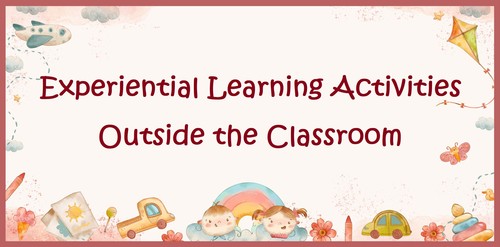
Theme: Outdoor Experience Activities
Grades: K1 to K3
Objectives
Encourage children to explore beyond the classroom, engaging with community resources and facilities to enhance sensory and experiential learning.
Foster holistic child development through a range of comprehensive learning activities.
Overview
Include experiential learning activities that tie into children's daily experiences, such as visits to interactive theater, creative workshops, snack making, and more. These activities promote diverse learning experiences, fostering exploration and creativity.
Aim to enrich each child's personal learning journey, enhancing interest and motivation in learning.
School year: 2024/2025
Highlights
Joint Parents and Children Outdoor Activity: Jordan Valley Park (K1 Students)
Visiting H2OPE Centre (K3 Students)
Visiting the Legislative Council Complex (K3 Students)
Water Save Carnival (K3 Students)
Visiting the Po Leung Kuk Museum (K3 Students)
K3 Visiting the Road Safety Town
Dic Dic Chang Chang’s World Adventure: Cantonese Opera X Children’s Interactive Theatre by One Table Two Chairs Charitable Foundation (K2 and K3 Students)
Visiting the Hong Kong Science Museum (K3 Students)
Visiting Hong Kong Heritage Museum (K2 and K3 Students)
Visiting the Ho Koon Nature Education cum Astronomical Centre (K3 Students)
Visiting Brighter Smiles Playland (K2 Students)
2024-2025 School Year Kindergarten Activty Grant Deployment Plan
2024-2025 School Year Kindergarten Activty Grant Deployment Report
School year: 2023/2024
Highlights
Outdoor Activity: Jordan Valley Park (K2 and K3 Students)
Visiting H2OPE Centre (K3 Students)
Visiting the Legislative Council Complex (K3 Students)
Visiting the Hong Kong Science Museum (K3 Students)
Visiting the Brighter Smiles Playland (K2 Students)
Visiting Lions Nature Education Centre (K1 Students)
Visiting 「The 15th Joint School Art Exhibition 2023-2024」(K3 Students)
2023-2024 School Year Kindergarten Activty Grant Deployment Plan
2023-2024 School Year Kindergarten Activty Grant Deployment Report




